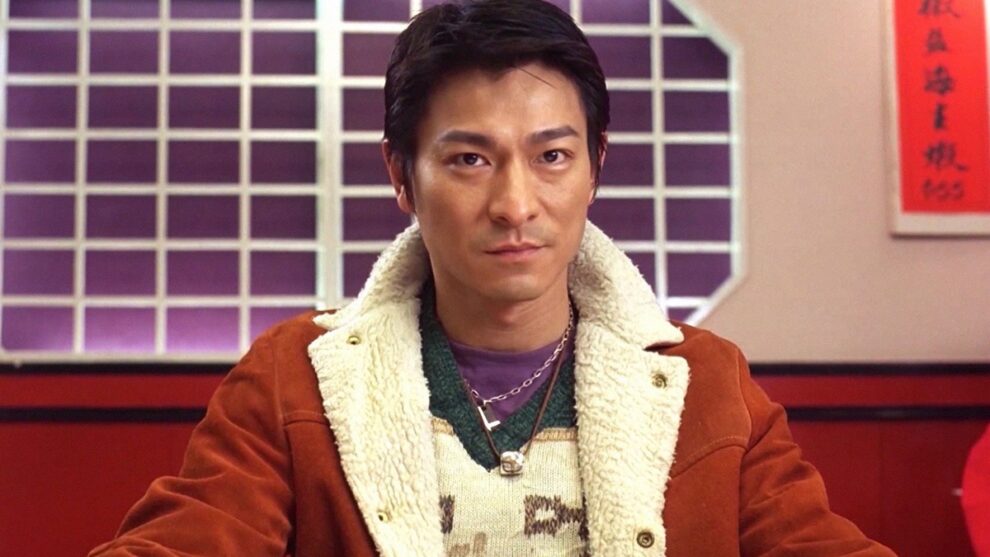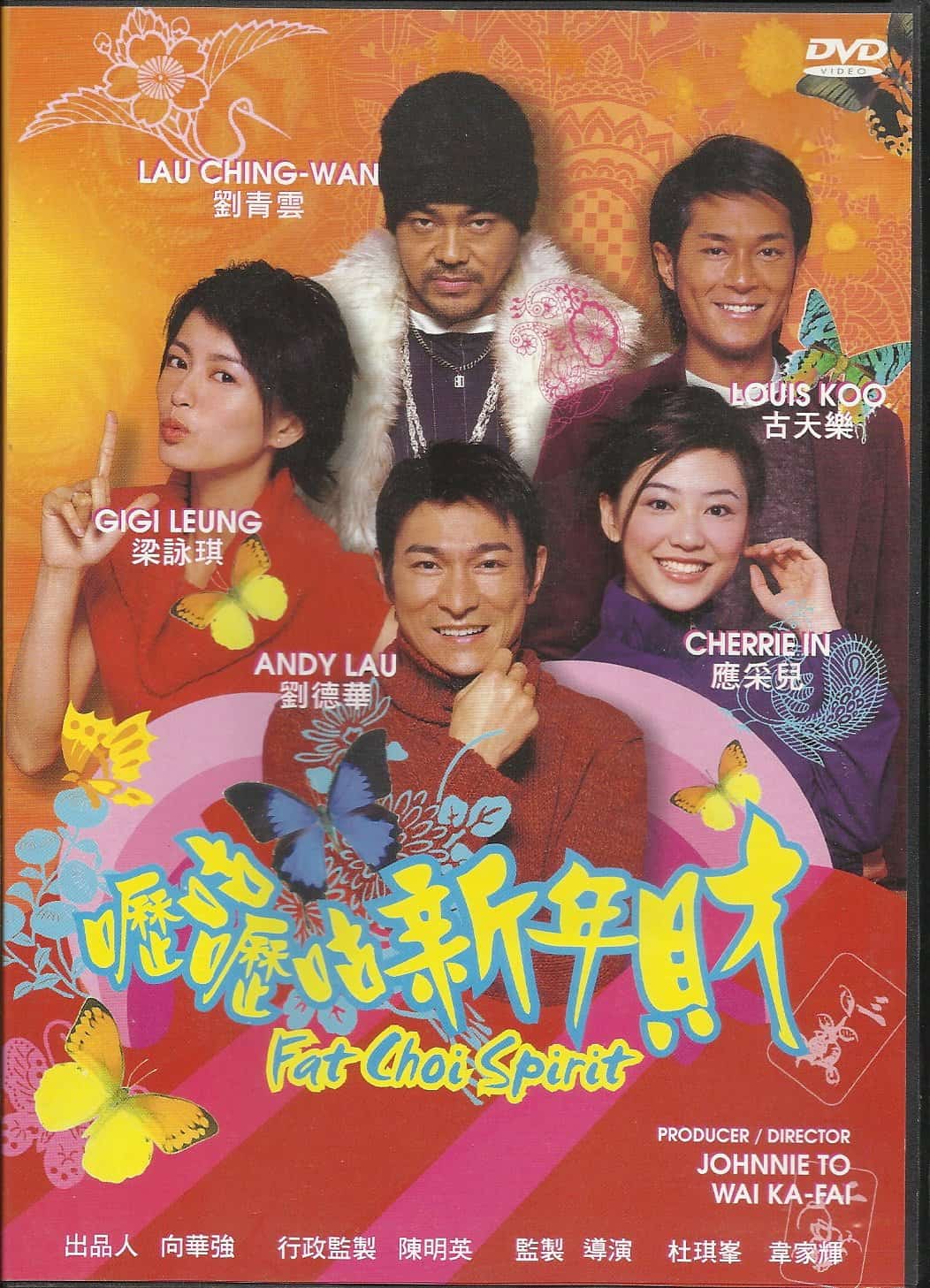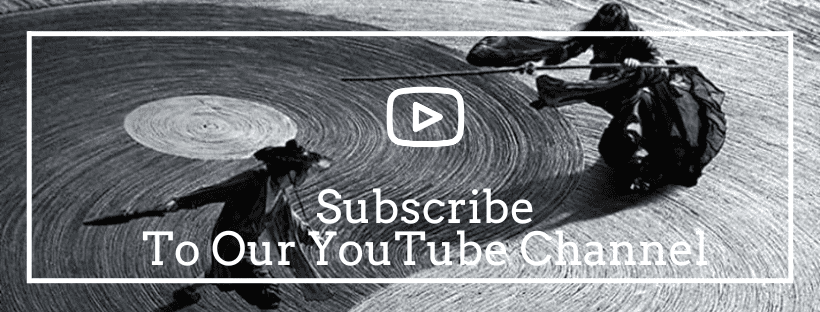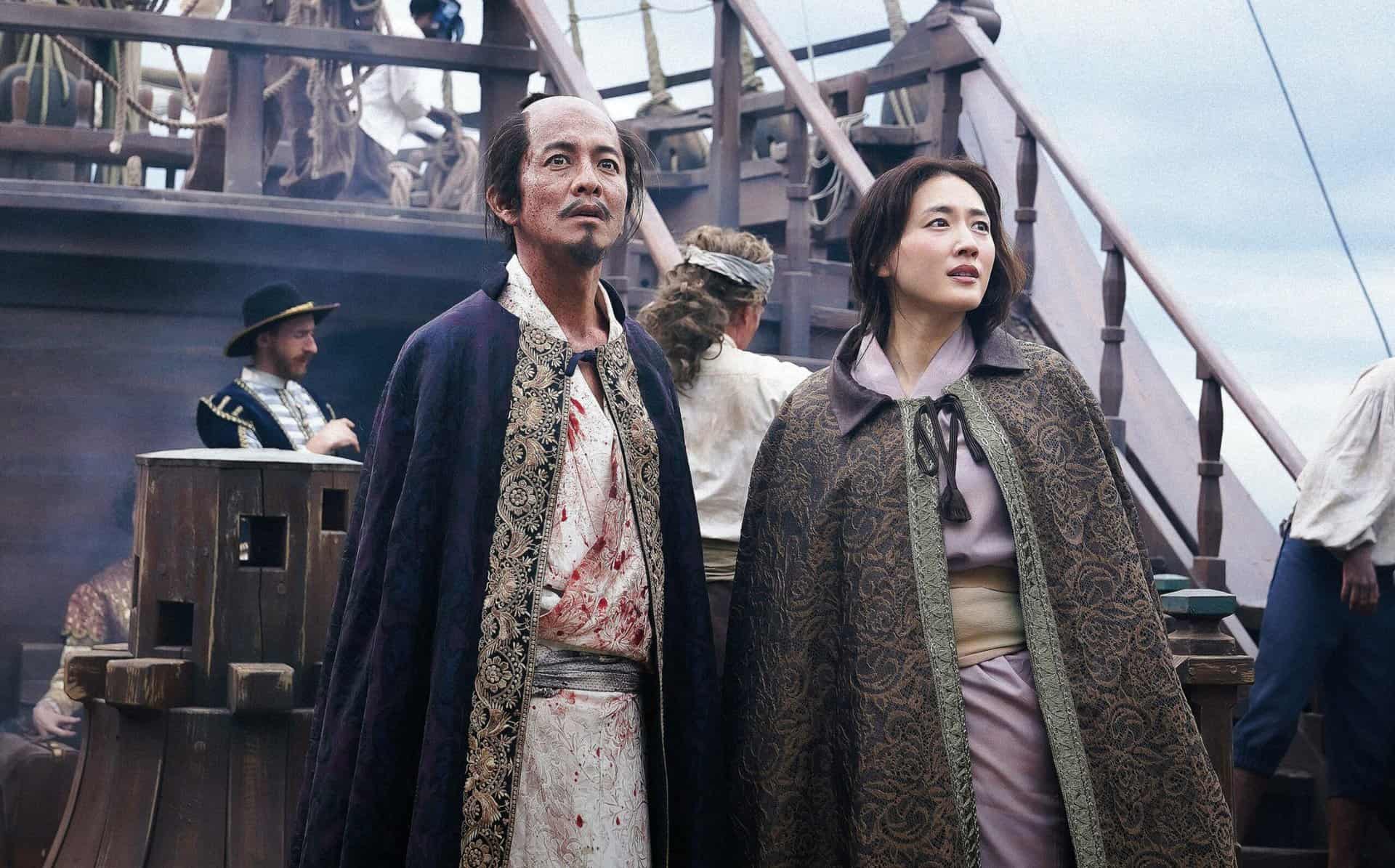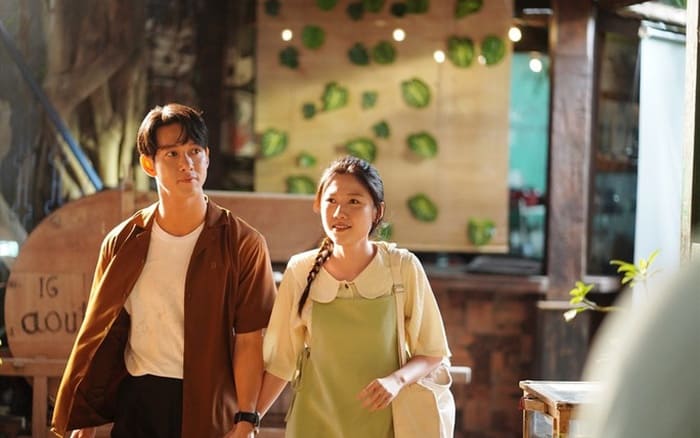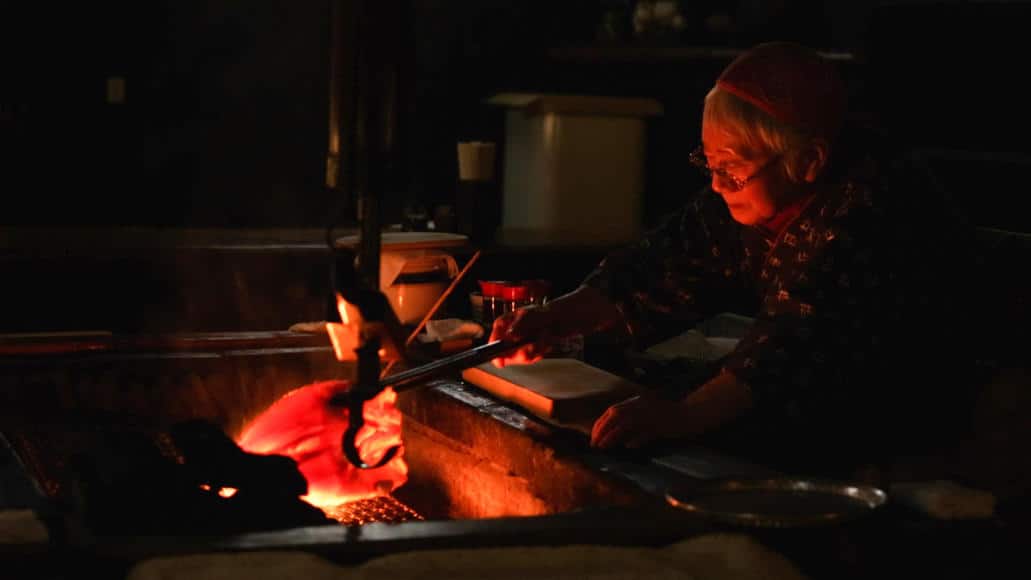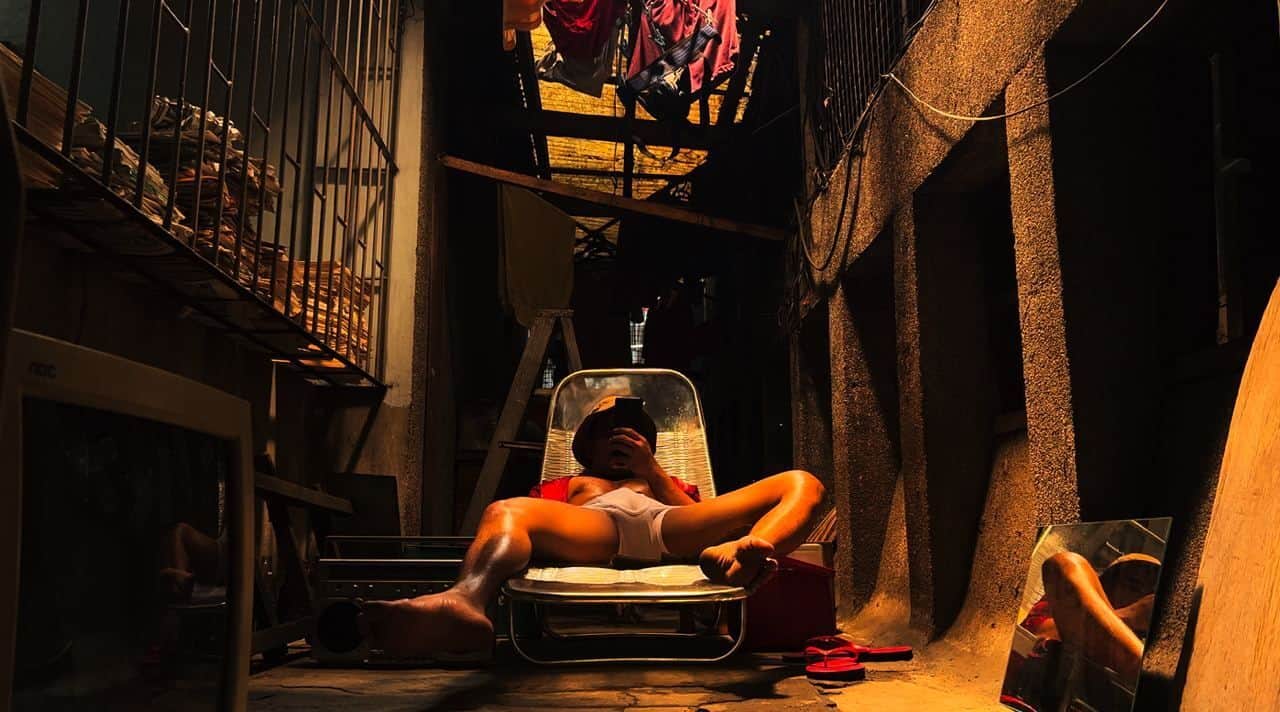by Renee Ng
Normally pinned for their gritty gangster tales, Johnnie To and Wai Ka-fai's efforts in romance and slapstick have often been sidelined. But as loveable titles “Fat Choi Spirit” and “Turn Left, Turn Right” have proved, the directing/producing duo are indeed dai lous (big brothers) of many genres. “Fat Choi Spirit”, following the tradition of Hong Kong gambler flicks, and like its title: spirit of endless wealth, is the hilarious gift that keeps on giving.
Buy This Title
on Amazon by clicking on the image below
Similar to the iconic “God of Gamblers” franchise, we have the pleasure of following an impossibly great player. Andy, played by Andy Lau himself, will do anything for a game of mahjong. But Andy is no addict, he's actually got a gift: he possesses the divine favor of Guanyin. Thus, he is simply unable to draw a bad tile and wins every game he plays. His excellent luck is explained with a temple blessing gifted by his on-and-off girlfriend, spunky and short-tempered Gigi (Gigi Leung), whose running gag of outlandish attempts to reap Andy's hand in marriage provide the story's pseudo-philosophical message: good character makes a good player. Gigi's horrid temper assures she will always flip a table when she loses, and Andy flat out refuses to marry her until she learns to cultivate better sportsmanship.
In classic slapstick fashion, Gigi moves mountains to gain Andy's attention. She re-appears as a traffic policewoman to stuff him with parking fines, then as a tax agent (in a ‘broom head' wig suspiciously similar to politician Regina Ip) to frame him for tax evasion. Meanwhile, Andy tracks down his estranged mother (Bonnie Wong Man-wai), and learns to reconnect with his mahjong hating brother, Louis (Louis Koo). They all join the ride on Andy's gambling exploits, rivalling gangster con men led by Sean (Lau Ching-wan), leading towards an all-iconic final match of mahjong.
Less is more? No, Johnnie To and Wai Ka-fai say. More, is more. The directing duo's world of mahjong warriors is a playground of absurd happenings, where every sequence is stretched to physical maximum. Our introduction to Andy sees him speeding across Hong Kong for a game of mahjong. In two minutes of screen time, he drives maniacally, refills gas for his truck, plays (and wins) a quick round while passing a table to the toilet, takes a leak, orders a quick sandwich, pays for his gas, then drives again while devouring his breakfast. These sequences are first of plenty that leave the audience agog. And the chaos never runs out or backs down.
Accordingly, the script takes narrative cue from its ingenious gags, with ditzy characters and side plots poking their heads in and out as they please, but always nailing the punchline. The humor is authentically Cantonese in all its theatrical sarcasm, the result of Wai Ka-fai's, Yau Nai-hoi's and Au Kin-yee's witty screenplay. Upon closer examination, their proposed fable of humility and temperance does struggle to hold up, with the consequent stake still having to be wins and wealth. Yet their dedication to keen and original humor, married with a sadly past tradition of operatic delivery, is what has “Fat Choi Spirit” nostalgically at the top of Lunar New Year watchlists even twenty years after release.
A splash ensemble of familiar faces: Andy Lau, Gigi Leung, Louis Koo and more, color the landscape well. Andy's justice tirades prove contagious as he plays saint and vigilante for gamblers, seeking revenge against players who cheat. Next to him, Gigi Leung's endearing portrayal of a hooligan girl with innocent intentions keeps us rooting for their romance. Despite their simple construction and occasionally disagreeable behavior, the two firecrackers share a chemistry too irresistible to hate.
Side characters and villains grow on us too. Louis Koo, leading man in his own right, carries unexpected charisma as a mousy, naïve man in IT. His love interest, played by Cherrie In, immediately captures with her expressive familiarity. Even gang leader Sean, the character we should hate, amuses with his poison of always wanting what he cannot have.
A less tangible, but no less definitive character might be the camera. Cinematographer Cheng Siu-keung's lens snakes through mahjong halls and coffee shops, taking us high overhead, close before the players, and submerged among tiles on the table, sometimes without a single cut. These elaborate sequences, reminiscent of Edgar Wright's fast pace, is the result of spotless synergy between all departments. With comic timing, everyone moves to the beat. The dance between camera, acting, editing, and sound become akin to a musical, creating a highly stylized experience that romanticizes the game of life. A life of mahjong.
Years down the road, “Fat Choi Spirit” remains timeless amongst Hong Kong cinephiles, a glimmering time-frozen portrait of its famous makers. Regrettably, the recurring thought with this comedy from 2002, is that its overripe performances, campy dialogue and extravagant camera movements would encounter disapproval today, although the above elements are in fact the film's very charm. Could this be a case of cinematic trends being lost to time? Gone are the days of such simple, bombastic daydreams. There may never be a title like this again, but luckily for us, laughter is an emblem of remembrance.


